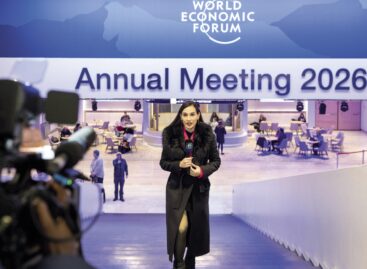Packaging regulations are getting stricter – competitive advantage or risk?
The European Union’s new Packaging and Packaging Waste Regulation (PPWR) is fundamentally and in several steps transforming the practices of EU companies. The aim of the regulation is to reduce the amount of waste generated, increase the rate of reuse and recycling, i.e. to encourage the transition to a circular economy model. According to EY experts, the regulation not only creates obligations, but also business opportunities: companies that start preparing in time can gain a competitive advantage in the supply chain. At the same time, those that do not prepare properly may even jeopardize their business.
 The PPWR regulations will gradually enter into force from August 2026, and from January 1, 2030, all packaging placed on the market must meet strict EU sustainability requirements. The regulation is directly applicable throughout the European Union, including Hungary.
The PPWR regulations will gradually enter into force from August 2026, and from January 1, 2030, all packaging placed on the market must meet strict EU sustainability requirements. The regulation is directly applicable throughout the European Union, including Hungary.
“The regulation affects not only packaging manufacturers and distributors, but all economic operators who come into contact with packaging in some way – from manufacturers to importers, logistics providers to retailers”
– emphasized Attila Fülöp, Partner at EY Hungary.
In the coming months, companies will need to assess their role in the changes and examine whether their current packaging portfolio – including primary, secondary and tertiary packaging – meets the new requirements. In addition, compliance with sustainability requirements may require technological developments (e.g. purchasing/restructuring a production line), the introduction of new materials or raw materials, or the transformation of the supply chain may also become necessary.
“Compliance with the law requires a strategic approach, which is not the task of a single department, as many aspects need to be considered and planned. The technical, sustainability, legal, purchasing, financial and tax areas may all be affected. In addition to coordination within the company, close cooperation with the actors in the value chain – suppliers, customers – is also necessary”
– added Attila Fülöp.
Preparation is a time-consuming process, as interpreting the law, transforming the product portfolio and developing new packaging can take months, and in more complex cases even years. Companies should start internal audits and mapping compliance risks now, as well as designating responsible organizational units.
However, the upcoming changes may not only be an obligation, but also an opportunity for companies, according to experts: the development of sustainable packaging solutions can create new market positions and brand value. Companies that redesign their processes in time can gain an advantage in the European market and better exploit the business opportunities inherent in the circular economy. External advisory support can also be a significant advantage for companies in the necessary preparation, legal interpretation, strategic planning and practical implementation.
Related news
Related news
Lidl guarantees fairer prices for cocoa farmers
🎧 Hallgasd a cikket: Lejátszás Szünet Folytatás Leállítás Nyelv: Auto…
Read more >40 secure jobs, sustainable solutions – new BURGER KING® in Csepel
🎧 Hallgasd a cikket: Lejátszás Szünet Folytatás Leállítás Nyelv: Auto…
Read more >








